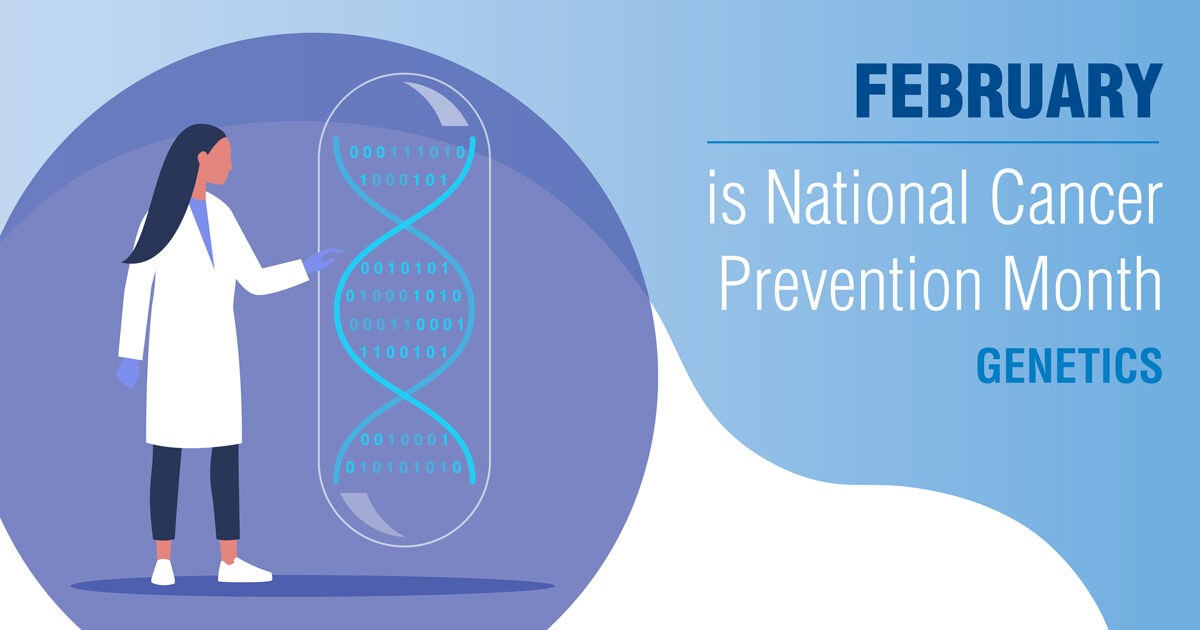If you have a history of pancreatic cancer in your family, a basic understanding of genetic risk factors and resources may help you prevent a diagnosis or detect it early. We may not “have a say” when it comes to DNA but we are empowered to learn about pancreatic cancer, talk to family members about our health history and take steps to lessen risk. This knowledge, in combination with the resources the Hirshberg Foundation provides, can help address your concerns about Familial Pancreatic Cancer (FPC).
When two first-degree relatives (parent, child or sibling) have been diagnosed with pancreatic cancer, seeking genetic counseling is part of your path to education and prevention. Having a family history does not necessarily mean you will develop pancreatic cancer, but it can increase your risk. Familial or hereditary pancreatic cancer accounts for about 10% of pancreatic cancer diagnosis.
Gene mutations can be passed down through generations, known as inherited mutations and can increase your risk for developing pancreatic and other cancers. For example, the BRCA1 & BRCA2 gene mutations, in part, account for an increased risk of cancer among Ashkenazi Jews. Several genetic mutations are currently being researched for their connection to an increased risk of developing pancreatic and other cancers. These genes include: PRSS1 BRCA1, BRCA2, ATM, PALB2, MLH1, MSH2, EPCAM, MSH6, APC, STK11, and CDKN2A. Each of these genes have a different risk profile and different cancer risks depending on the individual gene. Genetic testing and counseling can lead to medical management to reduce the chance of developing cancer or increased surveillance for cancer, with the goal of detecting cancer earlier when treatment options and outcomes are better.
Learning your family history and knowing the risk factors can help you take proactive steps. You can find a genetic counselor in the US or Canada by contacting the National Society of Genetic Counselors. The National Comprehensive Cancer Network (NCCN) recommends genetic counselling for all individuals diagnosed with pancreatic cancer, however, genetic testing is not limited to patients. As you investigate your family history, it is also important to understand the basics about this disease. Take the time to discover what your pancreas is and which modifiable risk factors you can prevent. Understanding your genetic make-up will help you determine whether your DNA puts you at higher risk and how to tackle those challenges.
Learn more about genetic risk factors.
Genetic Counseling
Wendy Conlon, MS, CGC, a genetic counselor with the UCLA Center for Pancreatic Diseases is a highly esteemed and trusted speaker for Hirshberg Foundation educational events. She oversees surveillance of patients and their family members, provides risk assessment, genetic counseling, and genetic testing for individuals with pancreatic cancer and their at-risk relatives. She helps individuals and families navigate their treatment options, as well as other cancer prevention strategies. In 2020 she was featured in our ongoing Patient & Family Webinar Series providing important updates on genetic counseling and access to testing during COVID 19. In 2019, she also provided her expertise when she presented on Why Should I See a Genetic Counselorat the Hirshberg Foundation’s annual Symposium on Pancreatic Cancer. We invite you to take advantage of these videos and other resources shared so you can learn about the benefits of genetic counseling.
Watch Why Should I See a Genetic Counselor
Watch Genetic Counseling: Review and Updates During COVID-19


